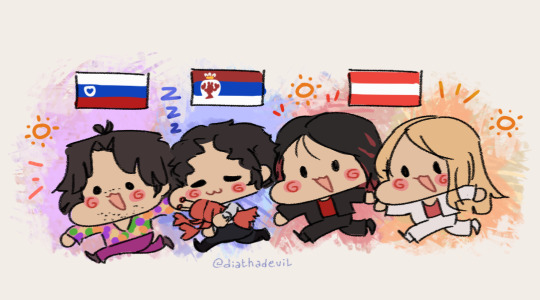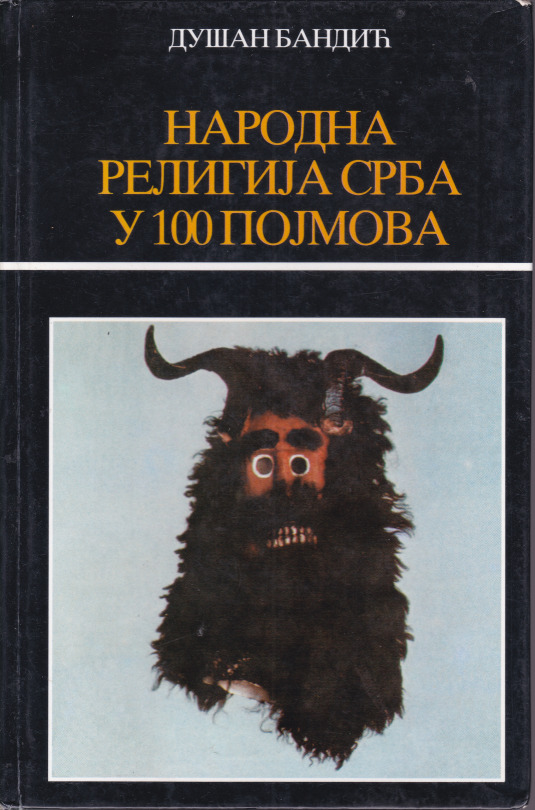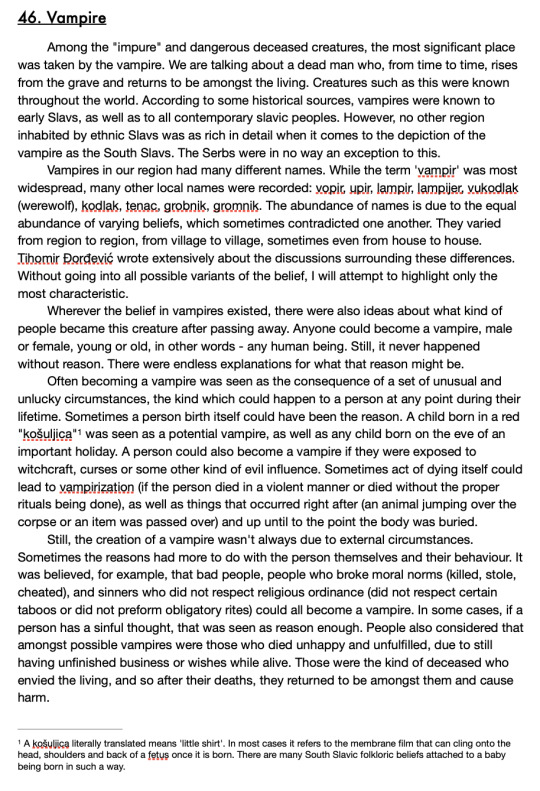#not my serbs
Explore tagged Tumblr posts
Text
another mena language post - i wanted to talk about judeo-arabic and clarify a little bit about what "judeo-arabic" means
the basics, for those of you who don't know: arabic, being a language that was spread over a large part of the world and has since evolved into many different forms, has many different things that differentiate certain dialects. languages/dialects can be influenced by languages speakers' ancestors spoke before, by the social structure of where speakers live, by languages they come into contact with, and by gradual evolution in pronunciation. (many letters like evolving into ones that are easier to pronounce - this is why arabic has no "p" sound, it eventually evolved into "f" or "b". the same thing happened in germanic languages to some extent, which is why we say "father" in english and "vader" in german while in romance languages it's some variation of "padre" or "père".) many arabic dialects in particular possess different substratum (obvious, traceable influence from languages people spoke in before shifting to the new one).
arabic, being a language that was spread over a large part of the world and has since evolved into many different forms, has many different regional dialects which are different for the reasons i described in the above paragraph. even though there's modern standard arabic (which is the subject of its own post), people speak regional dialects in real life. on top of that, there's a variety of social influences on different types of arabic, such as whether someone's living in the city or in the country, whether someone's sedentary or a bedouin, and in some cases religion.
in the middle east, religion was historically:
not seen as a personal choice, but as something you're born into and a group you're a part of, kind of like ethnicity;
not generally something governments actively wanted everyone to share one of at the penalty of ostracization due to sticking to your group being the more livable way of life in the area, or later, the benefits of things like imposing extra taxes on people who weren't the "correct" religion/branch (this is far from being a "muslim thing" btw, it's been in the area for a while now, i mean look at the assyrians);
an influential factor in where you lived and who you were more likely to interact with because of those two things. (for example, it wasn't uncommon for most of the people living in one village in the countryside to share one religion/branch of a religion. if your village converted, you converted, too. if they didn't, you didn't, either.)
this means that the influence of religion in different types of arabic is due to people of different religions living in or coming from different places, and who people talked to most often.
for example, in bahrain, most sedentary shia bahrainis' ancestors have lived on the island for a very long time, while most sedentary sunni bahrainis' ancestors immigrated from other places in the gulf and iran in the 18th century. therefore, while they've all interacted and shared different aspects of their dialects including loanwords, there are two "types" of bahraini arabic considered distinctive to sunni and shia bahrainis respectively, regardless of how long ago their ancestors got there. despite the differences being marked by the religion of the speakers, they have nothing to do with religion or contact/lack thereof between bahraini sunni and shia, but with the factors affecting the different dialects i mentioned in the first paragraph which influenced either group.
a similar phenomenon to this in english is class differences in accent in england. nothing in received pronunciation is actually something only rich people can say or unintelligible to poor people, it developed by the class differences influencing where rich and poor english people lived and the different pronunciation/linguistic histories in those places, as well with different classes keeping more to themselves.
the influence of religion on arabic dialects isn't universal and nowhere near as intense as it is with aramaic. some places, especially more cosmopolitan or densely populated places, are less likely to have very noticeable differences or any differences at all. in addition, certain variations of a dialects that may've been influenced by religion in some way (as well as urban dialects) may be standardized through tv/movies/social media or through generally being seen as more "prestigious", making more people who wouldn't have spoken them otherwise more likely to pick it up. (this is why so many arabic speakers can understand egyptian arabic - cairo is like the hollywood of the arabic-speaking world.) this is the case with many if not most countries' official and regional languages/dialects nowadays.
this phenomenon is what "judeo-arabic" refers to generally. like many other jewish diaspora languages, the "jewish" aspect is that it was a specific thing jewish people did to different types of arabic, not that it was isolated, possessed a large enough amount of certain loanwords (though some varieties did have them), or is unintelligible to non-jews. people were generally aware of differences where they existed and navigated between them. (for example, baghdadi jews may've switched to the more prestigious muslim baghdadi dialect when in public.) if you know arabic, listen to this guy speak, you should be able to understand him just fine.
judeo-arabic also often used the hebrew alphabet and some may have been influenced by hebrew syntax and grammar in their spelling. you can also see the use of script for religious identification in persian and urdu using the arabic script, and in english using the latin alphabet. in general, influences of hebrew/aramaic on different types of judeo-arabic aren't consistent. you can read more about that here.
"judeo-arabic" isn't a universal that definitely happened in every arabic-speaking part of the world that had jews in it to the same degrees, but it did definitely exist. some examples:
after the siege of baghdad in 1258, where mongols killed all muslim baghdadis and spared baghdadis of other religions, bedouins from the south gradually resettled the city. this means that the "standard" sedentary dialect in the south is notably bedouin influenced, while dialects in the north are more notably influenced by eastern aramaic. christians and (when they lived there) jews in baghdad have dialects closer to what’s up north. within those, there's specific loans and quirks marking the differences between "christian" and "jewish".
yemenite jews faced some of the most persistent antisemitic persecution in the middle east, so yemeni jewish arabic was more of a city thing and often in the form of passwords/codewords to keep jews safe. jews were usually a lot safer and better-regarded in the countryside, so jewish yemeni arabic was much less of a thing there, and when it was, it was less "serious".
due to the long history of maghrebi immigration to palestine, there's attestation of maghrebi influences in arabic spoken by some palestinian jews with that origin. this was also a thing in cairo to some extent.
(i'd link sources, but most of them are in hebrew, i guess you'll have to trust me on this one??)
still, the phrase "judeo-arabic" is often used with the implication that it was one all encompassing thing (which it wasn't, as you can see), or that jews everywhere had it in some way. many jews who spoke some version of arabic special to their mostly-jewish locale may not have registered it as a specifically "jewish" version of arabic (though they did more often than not). the truth is that research about anything related to middle eastern and north african jews is often sloppy, nonexistent, and often motivated by the desire of the researcher to prove something about israel's colonization of palestine (on either "side" of the issue). this is not me being a centrist about the colonization of palestine, this is me stating that academia is often (even usually) influenced by factors that aren't getting the best and most accurate information about something. i don't think we're going to get anything really "objective" on arabic spoken by jews in that regard for a long while.
for comparison's sake: yiddish is considered a separate language from german due to 19th century yiddishists' efforts to "evolve" yiddish from dialect to language (yiddish-speaking jews were said to speak "corrupted german" historically; on that note sephardim were also said to speak "corrupted spanish"). this was at a time when ethnic nationalism was en vogue in europe and declaring a national language meant declaring your status as a sovereign nation (both metaphorically and literally). for yiddishists to assert that they were speaking a language and not a dialect that intrinsically tied them to germans was to reject the discrimination that they were facing. (besides, german/austrian/swiss jews weren't speaking yiddish (leaving it with the connotation of being the language of those icky ostjuden), yiddish-speaking jews had practically zero other ties to germany/austria/switzerland, and yiddish-speaking jews (let alone the yiddishists) were almost entirely east of germany/austria/switzerland, so it's not like they were pulling this out of their ass.)
whether a jewish person of arabic-speaking descent calls it "arabic", "judeo-arabic", or something like "moroccan"/"syrian"/etc depends on who you're talking to, where they're from (both diaspora origins and today), how old they are, and what they think about zionism. despite "judeo-arabic" being what it's called in academia, on the ground, there's no real strong consensus either way because the social circumstances arabic-speaking jews lived in didn't drive them to form a movement similar to yiddishists. (not because there was no discrimination, but because the political/social/linguistic circumstances were different.) the occupation since made the subject of middle eastern jews’ relation to the middle east a contentious topic considering the political and personal weight behind certain cultural identifiers. the term "judeo-arabic" is modern in comparison - whether it's a distinction dredged up by zionist academics to create separations that didn't really exist or a generally accurate term for a specific linguistic phenomenon is a decision i'll leave you to make.
#jewish#mizrahi#languageposting#my posts#my own opinion is it doesn’t matter what you label a language because it doesn’t erase its history#what we think of as a ''language'' or ''dialect'' is arbitrary#technically hebrew arabic and aramaic are all dialects of proto-semitic#but it’s a good general idea to listen to speakers to know why someone may think of it in the way that they do#like yeah i do think political circumstances cause bosnians/serbians/croatians to label the language they speak as separate things despite#them all speaking one thing. but if a croatian guy tells me he speaks croatian and it has nothing to do with bosnian or serbian i won’t be#like ‘’well actually it’s a dialect continuum’’ or ‘’you poor thing manipulated by nationalist propaganda’’#ill just smile and nod and move on#he has a god given right to see the language he uses every day however he wants#even if i came to my opinion through research and the concensus of other bosnians/serbs/croats it means nothing in comparison
150 notes
·
View notes
Photo

I saw a video of them hanging out and I desperately needed to doodle these guys. 😭💖
#eurovision#esc#joker out#bojan cvjetićanin#luke black#teya and salena#eurovision 2023#esc 2023#alternatively i named this file --The Serb gang and Salena because she's an honorary Serb---#these guys are actually fun to draw what the heckie#is eurovision becoming my new fan art phase oh no#we shall see aaahahah#also dont ask me about our balkan flag emblems im terrible at memorizing the color order let alone the emblems themselves#so serbia now has a lobster for an emblem its canon#doodle
383 notes
·
View notes
Note
i cant.. think of a req.. fuck. uh. draw ur. whatever ur favorite two are. or.. the evil one.. shudders and shakes i hate him please don’t draw him —🦴

#request#👑 ;; anđelka#I should change my name on here to one of the thousand ones I have...#did hou know I have a name hoard#Alexandra/Sasha/Nika/Anđelka/Serb#shit's crazy#countryhumans#Serbia ch#Montenegro ch#sfw tickles#sfw tk blog#sfw tk community#sfw tickling community#wing tickles#tickle art#🦴 anon
83 notes
·
View notes
Text


Serbian Folk Religion in 100 Terms // Narodna Religija Srba u 100 Pojmova (1991) - Dušan Bandić
"Dr. Dušan Bandić (1938-2004) was a professor of ethnology at the Faculty of Philosophy in Belgrade and for a time the head of the Department of National Ethnology and Anthropology.'' - in my attempt to make more sources on ex-yu culture accessible, i've begun to scan and share some of the good material i've read! due to some expressed interest, here is a segment on vampires and watermills (which are connected to vampires)! - for folks who can read serbo-croatian and cyrillic, you can read the direct scans from the book here and for those of you who can't, i've translated the pages into english myself and you can read them here. hope some of you enjoy reading about vampires before they were sexy! if you are interested in reading any of the other segments, you can find a table of contents here and let me know which you'd like to see first. (note: while im fluent in english and put a lot of effort into these translations, i'm by no means a professional translator. my primary focus was that the facts were translated correctly and relayed what people believed)
#its here finally i did it!!!!#i think i'll start tagging all my archiving and information sharing attempts with#basil archives#really hope somebody enjoys this!#i've read the whole book myself and can confirm that its a lovely source of reliable information#written before the onslaught of nationalism#just a genuine account of some folkloric beliefs#balkan youth have always outlived evil times#myposts#also this books talks about the beliefs of serbs from all over bosnia croatia and motenegro as well#and as we know the beliefs of a village didnt split across ethnic lines before uh modern times#so its not exclusively serbian beliefs#neither of the texts are large btw!#vampires a 5/6 pages watermill like 2 or 3#btw if anyone notices any mistakes please let me know! english or serbian#also if google drive is for whichever reasons not working also let me know!
118 notes
·
View notes
Text
mystified by the rhetorical argument that consistently pops up in a particular brand of online debate that being "you can't blame people from the USA for loudly proclaiming about how they don't know basic history/geography because the USA education system is so extremely underfunded and bad and it's not someones fault if the education system failed them" cause half the time theyre talking to like a serb. do you think they teach you anything in balkan public school
7 notes
·
View notes
Text
Hey hi hello I have a QUESTION (please don't google the answer before you vote)
Based on a video I just saw where someone pronounced it uhhhh wrong
(Read all the options to make sure you choose correctly)
To clarify, I understand not knowing how to pronounce foreign place names. That's a problem every person on earth has at one point or another.
In this case, the utter shock that tossed me out of my viewing experience was that this is a professional who lives in Europe and was doing a section of the video on this city. I would expect someone in that position to look up the pronunciation for the video, and I would also... not be surprised if this is the default pronunciation among anglophone speakers, even though it's Wrong.
#phoenix polls#polls#words#pronunciation#croatia#zagreb#slavic stuff#balkan stuff#former yugoslavia#it was the new Not Just Bikes video but that's the only hint you're getting#Context: I'm a Serb and a whole branch of my family lives in Zagreb so
54 notes
·
View notes
Text


Harush Ziberi, a Muslim man begs for his life from the Serbian paramilitary unit known as the Tigers and led by warlord Arkan during the first battle for the war in Bosnia. He was later thrown from a window during an interrogation and eventually found in a mass grave. Image: Courtesy of Ron Haviv, VII
The family of Harush Ziberi (photo of man with hands in air, being taken prisoner by Arkan’s Tigers) presents their collection of images related to his death in the first battle in Bosnia, how his body was found in a mass grave, and eventually returned and buried in his home village. For 12 years my photograph of him was all they knew until they were contacted by #ICMP that his remains were found. -
Ron Haviv 2018
Ron Haviv - Capture magazine
Arkan’s Paramilitaries: Tigers Who Escaped Justice | Balkan Insight
Investigating War Crimes: Attacks on Civilians – Global Investigative Journalism Network (gijn.org)
#bosnia#bosna i hercegovina#photography#journalism#ARKAN#RON HAVIV#1990S#MUSLIM#SERB#ethnic cleansing#art#free gaza#freedom#free speech#quotes#Twitter#podcast#painting#kawaii#hello kitty#pastel#sanrio#my melody#paris 2024#2024#Paris#olympic#olympic games#war crimes#drawing
7 notes
·
View notes
Text
SerbRo band AU real? I'll be frank I know next to nothing about bands or music but the idea is really growing on me!!!!
#just talking recreationally#hetalia#serbia#romania#aph#hws#serbro#Serb & Ro being a couple/duo who performs in places in Europe#I can see them constantly travelling and never quite settling down and just having fun#Actually maybe settling down if they have kids one day. Idk#(Actually I could make them part of a bigger band but aim not sure who else to add haha)#(I mean I certainly do have options serbro is just most of whats on my mind rn)
11 notes
·
View notes
Text
what can i say when the site ships to fcking tuvalu but not to a balkan country
2 notes
·
View notes
Text
the bosnian war is a tricky thing because the roots of its aftermath continue to dig deep even generations later.
it’s awful, but also terribly fascinating to see irl, i think. i wasn’t even born yet when it happened and yet i still encounter the consequences to this day.
i am still told to be wary of people belonging to certain nationalities just like they’ve probably been told to be wary of me. i drive past a city and it’s divided into sections of different nationalities; to the point that even the road signs suddenly change from latin to cyrillic.
there are flags everywhere, marking the nationality of every small village so that you know what to expect when you set foot in it. i drink one glass of wine too many with my mom and she sheds a couple of tears for her brother that she lost during the war — an uncle who i’ll never get the chance to meet. my dad shows me his childhood friend’s home when i visit his village, but all i see are bricks that have been burned down to the ground.
it’s just… very overwhelming, despite the fact that i was lucky enough to not be a part of it.
#every day i’m thankful for having open minded parents!!!!!!!!!!#my dad said he doesn’t care what nationality my bf is; he’d take a serb under his roof as long as he was a good person :)#and it’s what i plan on teaching my kids too
14 notes
·
View notes
Text
#it's kind of true#one of my best friends in uni was this liberal serbian girl#she followed a pretty standard run of the mill turbo urban liberal thought you would find in like london or amsterdam but#she was a hardcore serb nationalist at the same time#it was so funny being at a house party and seeing someone having the misfortune of stating their stupid opinion on kosovo or nato to her#she was merciless with it#most liberal metropolitan serb#meeting her brother was funny though as he had a chetnik tattoo and he was vibing well with my azovite ukrop friend#vid
25 notes
·
View notes
Text
Mostly for Serbians but there are probably other cultures/languages where grandmas are called baka or baba
Превод:
"Како ти зовеш своју бабу/баку?"
Прва опција: баба
Друга опција: бака
Ово питам највише Србе али вероватно постоје и друг�� културе/други језици где су бабе/баке зване баба/бака
(извињавам се за лош превод, мозак ми не ради)
#polls#my polls#serb#serbian#srbija#србија#српски#срб#srb#srpski#croatian#bosnian#?#not sure#slavblr#slav#balkan#serbposting
8 notes
·
View notes
Text
my first cc :D
so I did a few recolors :p


yeah just soviet cat shirts and ustase flag because why not
sim file share link here :3
#the sims 4#thesims4#ts4#sims 4#ts4cc#s4 custom content#sims 4 cc#ts4 cc free#ts4 cc download#maxismatch#ts4 soviet cc#pls notice me#ustase senpai#i will change my serb kissing ways
4 notes
·
View notes
Text
yk its a bit silly, but there is such a joy i experience when i become friends with a croat. it always feels like a victory. like you didn’t get me motherfuckers. all that hatred, nationalism and propaganda and you didn’t get me.
#maybe its just a couple in a sea of nationalism but i love the feeling of defying things that my country so painfully wants to me believe#and it doesnt hurt when you tell me im not a serb#sorry jackass you dont have that power#im queer im a serb and i love fucking love my neighbors can't change my passport bitch#logs#balkan youth have always outlived evil times
19 notes
·
View notes
Text
Any of you fucking weebs out there remember Flying Witch?
#chihiro ishizuka#flying witch#why did it try to turn weeb into Serb is my autocorrect trying to start a war?#anime
19 notes
·
View notes
Text
having a culturally diverse friend group is so fun because how else would I hear badly translated jokes that make no sense in any other language or watch drunk people fighting in two different languages
#my czech and hungarian friend are my biggest source of entertainment as you can see#a serb a bosniak and a croat walk into a bar#they just bully each other#culturally diverse is very limited for me though because I do indeed live in a pretty homogeneous country BUT#somehow managed to form a very mixed group despite that#it's still mostly different slavs plus a few jewish people and hungarians#outside of that group I also have a half french half jamaican guy and a mexican american and three amazing indonesian ladies#student exchanges my beloved
1 note
·
View note